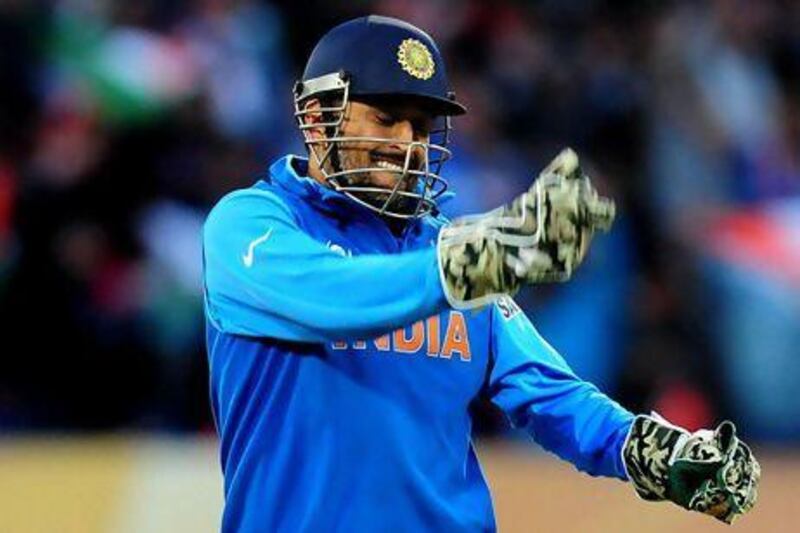The greatest trick MS Dhoni ever pulled? Letting the rest of the world believe they know what he is like. Or, at least making it so that they are content with whatever little they do know.
Dhoni is not obviously inscrutable. He has an expressive face, though watchers note the smile is dimmer than it was when he arrived. With the media he often talks openly and honestly about a match just won or lost; other times he exhausts cliches. He can emanate warmth and ice.
Yet beyond this expressiveness, behind the smile or the poker-face, behind those eyes, is a vast distance which, once covered, might lead to a real Dhoni. He is more human than Sachin Tendulkar because he is not as great a player, but like Tendulkar, Dhoni has located the Greta Garbo-esque ability to be indecipherable when the spotlight is brightest on him, to be there and to not be there at all.
That is the most remarkable thing about him and his captaincy, that so public a figure can remain so private, at no outward. He hovers over Indian cricket like nobody else before him, not even Tendulkar, but he does it with all the revelatory force of a billboard.
Now here he is, captain triumphant once again, enhancing an equally remarkable tenure and completing a limited-overs grand slam of sorts, by having won the World Twenty20, the World Cup and the Champions Trophy. He has also previously won an Asia Cup, the Australian tri-series, the Indian Premier League (IPL) and the Champions League, and those are about all the titles you can win in the two formats.
Is he a better captain than he was when India were walloped in Tests in England and Australia, or even in India against England last winter? Is he a different captain to that one, who could look so inert and lifeless, and happy for things to drift?
It is difficult to say but his leadership seems better suited to limited-overs cricket, where juggling successfully with limited resources is a deal-sealer. The importance of this has always been clear to him, apparent from one of his earliest interviews in Cricinfo magazine, when the leitmotif of his cricket thinking emerged through a shoot-em-up PlayStation game he was playing: goli kum he, accurate khel ("you don't have that many bullets, play accurately").
Many times not making a move, and just perpetuating a holding position brings its own rewards. Like hanging back on Ravichandran Ashwin and Ravindra Jadeja in the Champions Trophy final so they bowled the last two overs and instead giving Ishant Sharma, potentially fatally, the 18th over. It was the kind of contrary move Dhoni's early captaincy successes were built on. It almost cost India, yet ultimately it won it for them.
Maybe it is just that India's current selection committee has more backbone than their previous one and provided him with a fresher, younger, more driven set of players than he has had in nearly two years.
But we have reached the stage where the sheer weight of trophies is beginning to tell. Soon it will cease to matter what he is like or what his captaincy is like. He wins is all that will need to be said, more than any Indian captain has before him and more than many of his contemporaries.
Follow us
[ @SprtNationalUAE ]





